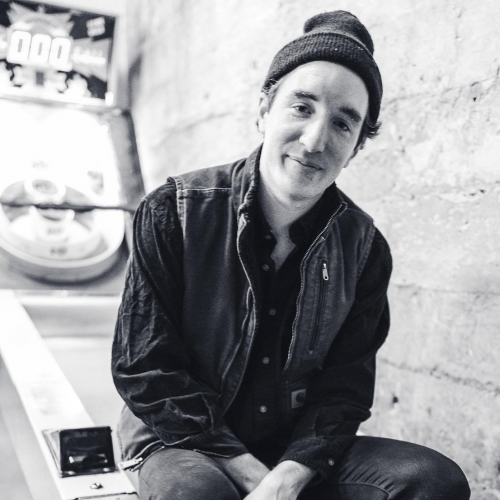The prompt, onerous, and ultimately devastating period of westward expansion that defined most of the nineteenth century remains one of the most dramatic and crucial chapters in American history. Even today, removed as we may be from the blinding ethnocentric hubris of the likes of John O’Sullivan, whose rousing words in the pages of the Democratic Review exhorted his fellow countrymen to “possess the whole of the continent which Providence has given us,” the idea of the westward journey still holds sway over our collective imagination, offering a vague yet hopeful sense of possibility.
Because of this, throughout the last century, the journey west has become synonymous with growth and progress. Both instructive and transformative, the Road has been a national metaphor for the process of introspection and soul-searching. And no other place has represented this metaphorical land of endless potential more vividly than California. Sitting on the country’s geographic and metaphysical edge, the Golden State has long emblemized the American Dream: that equally ambiguous and numinous concept that drives our grand National Narrative. From the rough-and-ready prospecting types who arrived in search of literal gold to Dorothea Lange’s and John Steinbeck’s huddled and hungry Midwestern masses, to the ambitious and visionary types who settled the sandy and sun-drenched floor of the Los Angeles Basin, California has remained the last and seemingly obvious answer to some of life’s most perplexingly existential quandaries.
And yet, for all of its undeniable magnetism, the California Dream is often no more than just that: a commonly shared desire that, like most desires, remains far removed from reality. This inconvenient truth, however, has not prevented the many artists, singers, and writers who’ve felt the westward pull from placing the Golden Land at the center of their creative undertakings. One such artist is Wisconsin-bred singer-songwriter Jacksonport. The latest in a long line of acoustic-guitar-wielding auteurs to croon reflective about the regenerative qualities of the Golden State, Jacksonport approaches the subject in his latest single “California Gold” off his upcoming record Scenes from Bellevue Park.
A hushed and affecting ballad replete with a delightful blend of two-part harmonies, electric and acoustic guitars, flutes, and a remarkably soothing tenor sax, “California Gold” finds singer and Jacksonport mastermind John Fatum as he relates the story of a man’s long-awaited arrival in the California coast. Elegantly pithy and minimalist, the story sees our nameless protagonist at the end of what appears to be a long journey. Pulling off the narrow and windy road that hugs the choppy waters of the blue Pacific, Fatum’s speaker takes a second to allow his environment to envelop him fully, bolstering his spirits in the process. Through laconic verses that lean heavily on the pastoral, he describes the liberating scene in vivid detail: the spirited ocean crashing ceaselessly against the ancient boulders scattered along the beach while the chalky and dusty ground greets his bare feet as he steps out of the car; all the while, a frisky and lazy breeze swishes playfully through his leisurewear.
This moment of clear rejoicing and serenity invigorates the speaker, who then marvels at the drastic contrast between the present moment and the previous evening. “Last night I awoke gasping for the last breath in the room,” he tells us, as he goes on to describe a harrowing moment of existential panic; the “kind that chokes and doesn’t let you back to sleep too soon.” Finding refuge in the arms of an anonymous lover, the speaker hears her whisper some encouraging and equally enigmatic words. “If you know paradise,” she informs him, “ you’re bound to feel the earthquake.”
These words are repeated twice throughout the song and frame the protagonist’s moment of epiphanic clarity. Emboldened by the powerful belief that he’s on the right path towards a felicitous destination and a newfound sense of purpose, the speaker follows the “enchanted byway” towards a “promise of morning” which he defines as his very own piece of “California Gold.”
The late great Joan Didion once said that “the apparent ease of California life is an illusion, and those who believe the illusion will live here in only the most temporary way.” As a native daughter of the Golden Land, it’s easy to see how she could come to this conclusion. Throughout her long life, Didion witnessed firsthand the many profound social, cultural, and economic changes that radically altered the character of the Golden State. And yet, even as the seemingly carefree and easygoing lifestyle at the nation’s physical and spiritual edge has given way to a hardened and challenging two-tier society rife with ever-growing inequality, the mythos and the allure remain. Because ultimately, the West or the Coast or the Road or the Golden Land are no different today from what they’ve always been: a mythical projection of our innermost desires, a representation of those versions of ourselves that don’t yet (and which may never) inhabit this physical world. A paradise shaped by the cracks formed by a restless and shaky ground.







